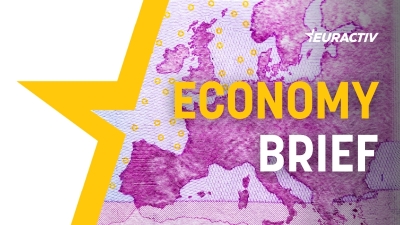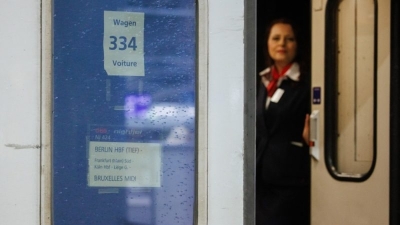Belgian Presidency continues push to fight medicine shortages

The Belgian Presidency is gearing up to tackle the escalating issue of medicine shortages across Europe. Experts call for enhanced collaboration, solidarity, and transparency to combat this crisis effectively.
Last year, Europe grappled with a notable surge in medicine shortages, paralleled by a peak in the United States. Illustrating the gravity of the situation, data from Belgium’s Federal Agency for Medicines and Medicinal Products (FAMPH) revealed a significant 20% increase in shortages within just one year.
“I believe in a Europe that not only cares, prepares but also protects, we must be able to reassure people. First of all, medicines will be there when people go to the pharmacists. We have a very ambitious agenda for tackling the complex issue of medicine shortages with a comprehensive, collaborative, and solidarity-driven approach,” Belgian Health Minister Vandenbroucke told Euractiv.
Last year, 23 Member States supported proposals to bolster medicine supply security, prompting a comprehensive response from the European Commission. This response entails various measures derived from pharmaceutical reform, including earlier notification of shortages, the implementation of prevention plans, and improved information sharing at the EU level.
Looking for an interim compromise
Under the leadership of the Belgian Presidency, discussions on pharmaceutical legislation are underway, with a primary focus on addressing shortages. The objective is not to close the cluster but to achieve an interim compromise that could chart the way forward, a diplomat told Euractiv.
The Presidency team is engaged in ongoing discussions and aims to reach conclusions during the upcoming working party at the end of May. Their objective is to strike a balance between implementing impactful provisions that foster a genuine prevention culture while ensuring proportionality in terms of administrative burden.
David Earnshaw, Head of the MSD Brussels Policy Centre, emphasised the complexities involved, stating, “We all want to get rid of shortages. The reality is it’s very difficult when you get into the nitty-gritty of it.”
Transparency is key
Challenges persist, particularly regarding the feasibility of proposed measures. Debates surrounding the European Commission’s proposal for six-month advance alerts highlight the complexities involved in proactive shortage management.
Earnshaw questions the feasibility of such a system, explaining: “If such foresight were possible, measures would be taken to avert the crisis altogether. The six-month alert system is not only unrealistic but also impractical.”
He also advocates for transparency and solidarity. The COVID-19 pandemic underscored the critical importance of transparency and cooperation among EU Member States in managing medicine shortages.
In March 2020, as the pandemic surged, hospitals across Europe were inundated with patients requiring intubation. The demand for Esmeron, a generic drug essential for anaesthetising the upper throat, skyrocketed, increasing by 500% within a month.
The company faced a dire lack of information regarding its availability in European countries.
“We had no idea how much was available in Sweden, how much was available in France, or whether the Commission should suggest to export more to Sweden because they were having a shortage. Every government in Europe didn’t want to tell the Commission or anybody else how much medicine they had. Because they were stockpiling it for the next wave,” said Earnshaw.
This lack of transparency hindered the possibility of a solidarity mechanism where countries could share resources to address the shortages.
Fading solidarity
Elisabeth Stampa, President of Medicines for Europe, recently echoed this message: “EU solidarity was critical to our response to the COVID-19 pandemic so that no patient was left behind. Since the pandemic, we have seen a slackening of this solidarity commitment with national divergences that undermine the supply of medicines to all Europeans.”
She stressed Europe needs to work together to prevent and mitigate medicines shortages, to strengthen EU manufacturing of essential and critical medicines, and to harness the power of digitalisation to serve patients.
“If each member state tackles these issues in their own way, we risk widening inequities in access and diluting our manufacturing capacities. My hope is to continue to support EU solidarity with the EU institutions, including DG HERA, with the full buy-in of the Member States and the Parliament.”
Leveraging existing systems
Looking ahead, Earnshaw highlights the significant role of data sharing in tackling shortages.
He suggests leveraging existing systems like the European Medicines Verification System (EMVS) for proactive shortage monitoring, contending that while EMVS was initially designed to combat falsification and counterfeits, it holds untapped potential for providing precise information on the location and quantity of medicines.
However, he notes reluctance from the Commission and some governments to adapt the EMVS for this purpose, highlighting a potential obstacle to future proactive shortage management efforts. “We could know precisely where every packet of medicine is and send it where there is a need,” he remarked.
Coordinating efforts
As discussions on challenges continue, the kick-off of the Critical Medicine Alliance on 24 April will mark a significant milestone in coordinated action at the EU level to combat shortages.
“The Critical Medicine Alliance will contribute to the coordinated action at EU level to prevent shortages of medicines,” said Stella Kyriakides at last month’s EU High-Level Conference on the Future EU Health Union.
“For the first time, we are bringing together all the stakeholders, industry and the Member States to work on this.” The Alliance will be the precursor to the much-anticipated Critical Medicines Act, drawing inspiration from the European Chips Act and the Critical Raw Materials Act.
“It’s crucial in a public-private partnership to identify the challenges, work on priorities for action and propose solutions to strengthen the supply of critical medicines in the EU to better prevent and combat their shortages,” said Vandenbroucke.
[By Nicole Verbeeck, Edited by Vasiliki Angouridi, Brian Maguire | Euractiv’s Advocacy Lab}
Read more with Euractiv




